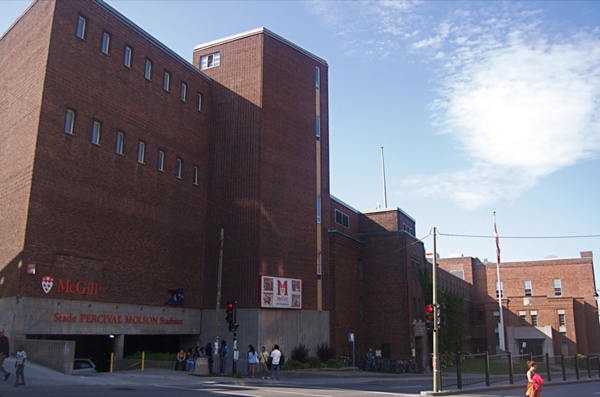The Office for Students with Disabilities (OSD) is collaborating with McGill Athletics to launch Fitness Access McGill, a project that will help students with physical disabilities maintain an active lifestyle. It offers students who self-identify as disabled two sessions of personal training to help learn exercise routines that they can carry into their daily lives to overcome acquired or innate barriers to doing physical activity. The pilot project will begin this semester with 10 students.
Fitness Access McGill was inspired by comments sent to the OSD that students with physical disabilities at the university were having difficulty establishing exercise routines. The idea came together over summer 2017, and the OSD began recruiting participants that November. OSD-registered students were invited to apply through a form that asked about the physical barriers they encountered during exercise. The initiative received an enthusiastic response and there were three times as many applicants as there was room for participants.
Participants will create personalized training programs with adaptive-fitness personal trainer Aaron Fellows and familiarize themselves with adaptive equipment on campus. Student volunteers in the Department of Kinesiology and Physical Education will also assist participants in their weekly training sessions.
“There are two main goals to this program,” Fellows said. “The first is to set participants up so that they feel confident and comfortable in exercising in the gym. The second is for them to keep working out and staying physically active even after they finish the program.”
To OSD Access Advisor Rachel Desjourdy, Fitness Access McGill is a valuable opportunity to extend the dialogue about accessibility from the academic sphere to less conspicuous, more personal spheres of student life, such as achieving and maintaining an active lifestyle.
“Traditionally, we think a lot about the academic environment, not necessarily about barriers in other aspects of university life, like social life and being active, which are really big parts of mental and physical health,” Desjourdy said. “Our theme for this year is promoting accessibility in non-traditional and unconventional ways.”
Desjourdy hopes that the project will spark wider discussions of inclusivity in physical fitness on campus.
“From a universal design perspective, there needs to be multiple entry points for a variety of users,” Desjourdy said. “If there’s only ever one way to access an active lifestyle on campus, then that serves a very small slice of people. That’s one of the cool things of universal design, [it] challenges you to think about what are the barriers for people, and what can we change in the environment to make their experience different.”
The program also aims to challenge normative views of ‘active’ living.
“Healthy looks different for different people,” Desjourdy said. “You can have a disability, or a chronic illness, and are traditionally viewed as unhealthy, but you can still be active and maximize what you can do.”
Sarah Canzer, Social Media and Community and Fan Engagement administrator at McGill Athletics, believes that existing fitness facilities have room to accommodate specific needs that students might have.
“We have all these facilities, but if people aren’t able to access them, or they aren’t even aware that they can access it, they all go to waste,” Canzer said. “Whatever their interests are, or whatever their abilities are, or whatever they have fun doing, there’s something for everybody—which is actually our slogan, and it’s true.”







